— By Metropolitan Job of Pisidia
Last February 2, at the honorable age of 92, the Elder Metropolitan of Pergamon John Zizioulas left this temporal life. He was one of the most eminent Orthodox theologians of the second half of the 20th and of the beginning of the 21stcenturies. I thank God for having had the opportunity to know him personally, and it was a great honor for me to have succeeded him as co-president of the International Joint Commission for theological dialogue between the Roman Catholic Church and the Orthodox Church, over which he co-presided between 2000 and 2016.
He devoted the last years of his life to writing a book on eschatology which will appear, I hope, as a posthumous publication. This theme excited him. In October 2015, he had given a very beautiful lesson at the University of Geneva with the very evocative title: “The end is where we start from. Reflections on Eschatological Ontology”, published in the proceedings of the Geneva conference (C. Chalamet, ed., Game over? Reconsidering Eschatology, Berlin-Boston, De Gruyter, 2017, pp. 259-278). The last time I was able to speak with him at the Phanar, in 2019, shortly before the start of the pandemic, I asked him if he had finished his work. He answered me with his mischievous smile: “It is difficult to put an end to eschatology”.
The name of Zizioulas is above all associated with one of the Fathers of Eucharistic ecclesiology of the 20th century. Rediscovered thanks in particular to the works of Father Nicolas Afanasieff – the only Orthodox theologian mentioned in the acts of the Second Vatican Council of the Roman Catholic Church – this teaching on the Church of scriptural and patristic origin and founded on the manifestation of the Church through worship and particularly through the Eucharist, has on the one hand enabled the rapprochement between the Roman Catholic Church and the Orthodox Church, which both agree on the doctrine of the Eucharist and on the ministries of the Church, and on the other hand favored the development of the ecclesiology of communion and the concept of communion of the local Churches, generally acceptable for the Churches of the Protestant reformation.
The foundations of Zizioulas’ Eucharistic ecclesiology can be found in his doctoral thesis published under the title: Eucharist, Bishop, Church: The Unity of the Church in the Divine Eucharist and the Bishop During the First Three Centuries. Following the remarks of his teacher at the time, Professor Jοhn Karmiris of the University of Athens, he corrected the ecclesiology of the Parisian theologian Fr. Nicolas Afanassieff who, in particular in an article entitled “Statio Orbis” (Irénikon 35, 1962), considered that “the local Church is where there is a Eucharistic assembly”. Karmiris had pointed out to Zizioulas that to be valid, a Eucharistic assembly has to be presided over by a canonical bishop or by a priest that he had delegated. Following this pertinent remark, Zizioulas transformed the Church-Eucharist binomial into the Eucharist-Bishop-Church trinomial, and emphasized in his works the importance of the bishop’s ministry, as Ignatius of Antioch or Symeon of Thessalonica had done before him in the past.
Metropolitan John had a great admiration for the Orthodox theologian Fr. Georges Florovsky with whom he had studied in the United States. He considered him as a “universal doctor of the 20th century”. While preparing my paper for the symposium organized by the Ecumenical Patriarchate in honor of this great theologian from Odessa, I was able to realize how much Florovsky had inspired Zizioulas in his thinking: in particular the capital importance of the ecclesial tradition, as well as the eschatological dimension of the Church – the Church being considered as the inaugurated Kingdom of God.
On this last point, Zizioulas also agrees with Fr. Alexander Schmemann. To have underlined the eschatological dimension of worship is certainly the greatest contribution of Fr. Alexander Schmemann to Orthodox theology of the 20th century. And this intuition has been taken up and developed more recently in the works of the Metropolitan of Pergamon. The liturgy is not simply the reminder or the memorial of the past. The liturgy is already the revelation and manifestation of the Kingdom of God. Schmemann also recalled that the liturgy addresses not only the relationship of man with God, but also implies the relationship of the entire cosmos with God through human beings. This intuition was subsequently taken up and developed by Metropolitan John especially in his theological reflections on the protection of creation in the context of the ecological crisis.
The call of Fr. Georges Florovsky for a “Neo-Patristic synthesis” implying not merely a “return to the Fathers”, but the capacity of applying the “mind” of the Church Fathers to new contexts, was understood and admirably implemented by John Zizioulas who knew how to reread the patristic sources with the glasses of contemporary thought in order to answer the questions that arise for Christians today. In this sense, his method and his works are a considerable contribution to bringing closer the divided Christians of today. In my humble opinion, they will never cease to inspire generations of theologians to come. May his memory be eternal!




















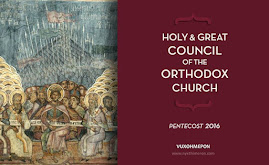
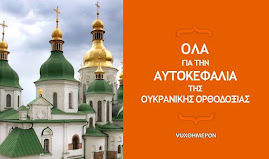
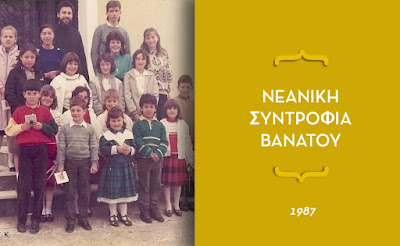
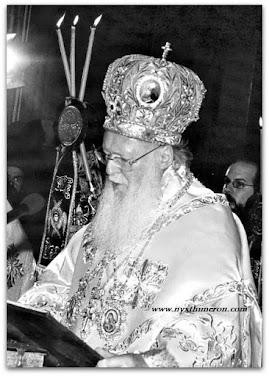





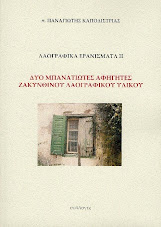
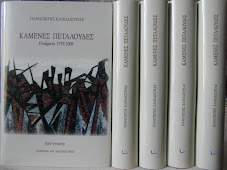

Δεν υπάρχουν σχόλια:
Δημοσίευση σχολίου